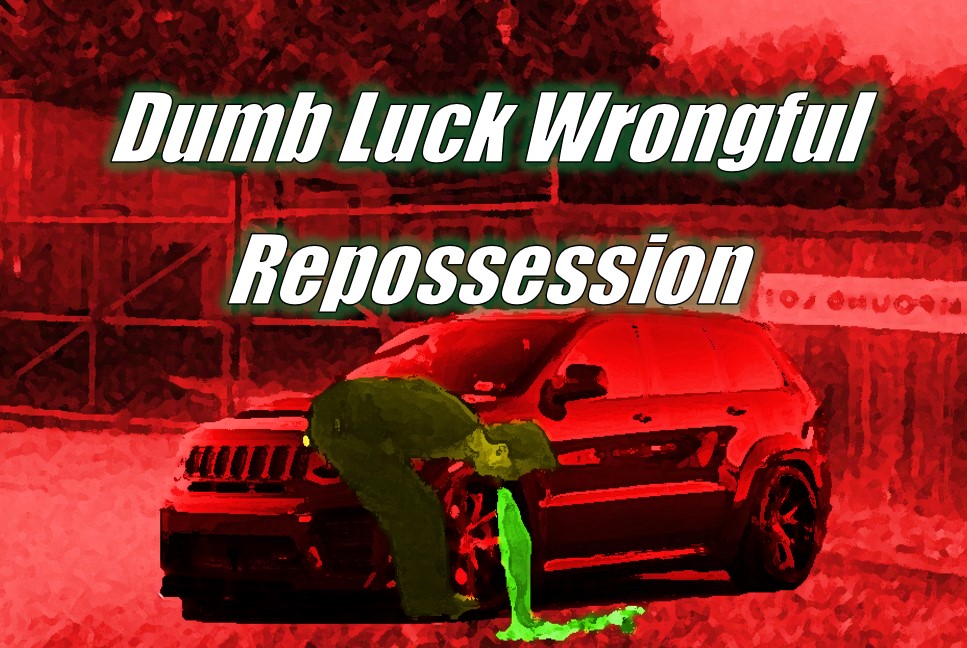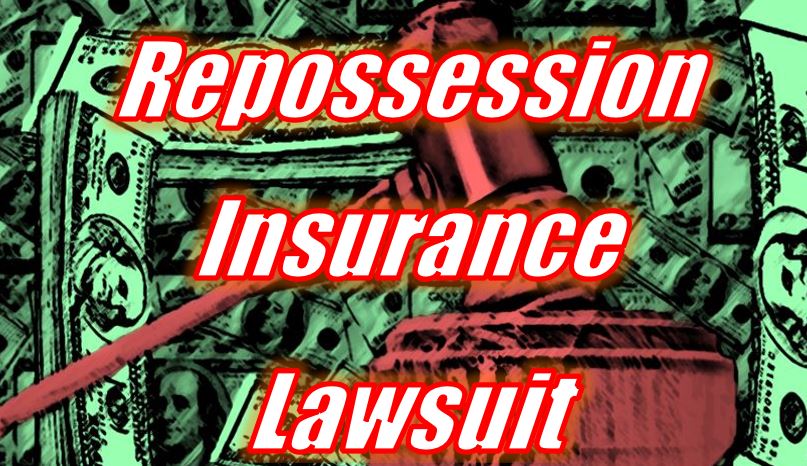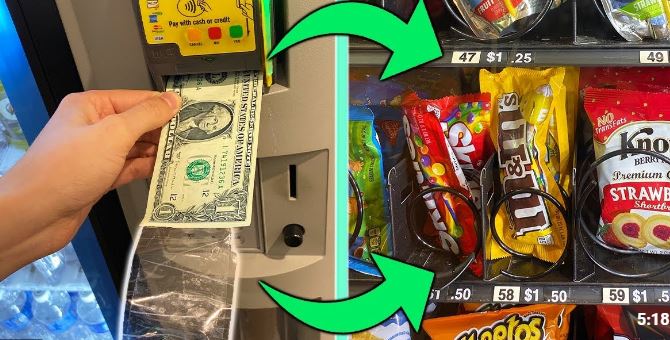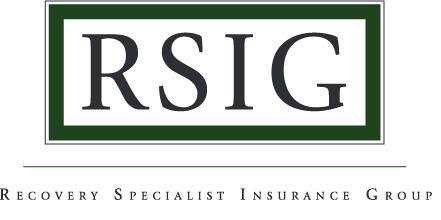The post Former Repossession Agency Owners Sentenced to Prison first appeared on CURepossession.
]]>Convicted of $1M lien stripping scheme against Ford Motor Credit
Indianapolis, IN – Bankruptcy fraud, Mechanics lien title stripping and auction fraud have been criminal issues the lending world has been fighting since the beginning. But rarely, if ever, do you see them on display together. Previously convicted and now sentenced, two former repossession agency owners find themselves sentenced to a combined eleven years for their engagement of these crimes.
Back in May of 2019, we first reported on the story of a pair of repossession agency owners had been indicted for running what prosecutors describe as a “title-washing scheme,” in which he targeted financially distressed car owners filing for bankruptcy, took possession of their vehicles, charged huge towing and storage fees and then resold them.
Both men were found guilty of one count of conspiracy to commit wire and mail fraud, seven counts of wire fraud, six counts of mail fraud, and three counts of money laundering.
The convicted are Brian Fenner, 45, of Camby, Indiana. He was sentenced to an initial 70 months of imprisonment on June 8, 2023, but had failed to surrender. He was later re-arrested in Morgan County, Indiana, on August 25, 2023. For his two months on the run, he earned another seven months to his fraud conviction sentence which was extended to seventy-seven years.
His partner, Dennis Birkley, 64, of Wisconsin, has been sentenced to five years in federal prison, apparently without resistance. Birkley’s LinkedIn profile reports that he had been the Owner/President of Mukwonago, WI. Based Asset Managment Inc., since 1990.
According to Findlaw, Fenner was a former employee of AMI, a Wisconsin corporation registered to do business in Indiana. Dennis Birkley is the sole shareholder of AML Fenner and Birkley both worked as repossession/recovery agents and have known each other for over twenty years. Birkley was Fenner’s mentor at one time.

Ford Motor Credit Company LLC (FMCC) filed a complaint against Sperro, Fenner & Associates LLC, and Brian Fenner (collectively “Appellants”), and AMI Asset Management, Inc. (“AMI”),1 for civil conversion, replevin, tortious interference with a contractual relationship, and conspiracy to commit fraud.
In a press release by the U.S. Attorney’s Office, Southern District of Indiana;
According to court documents and evidence introduced at trial, between 2013 and 2016, Fenner promoted the “Sperro free bankruptcy program” to individuals who were planning to file for bankruptcy. Through this purported “free bankruptcy program,” Fenner promised to pay the debtors’ bankruptcy attorneys’ fees if they turned over their vehicles to him, instead of surrendering them to the banks that financed the purchase of the vehicles.
Numerous people from across the country participated in the program and surrendered their vehicles to Fenner, including from as far away as California and Arizona. Fenner arranged for the debtors’ cars to be towed to his lots in Indianapolis for outlandish fees, which formed the basis of a bogus mechanic’s lien on the vehicle.
Fenner then pretended to “sell” the cars to Birkley at “auctions” to cover the exorbitant mechanic’s lien. In reality, no auctions occurred, no money changed hands, and there was no sale by Fenner to Birkley. Instead, the sham auctions were part of a series of lies and fraudulent documents submitted to the Indiana Bureau of Motor Vehicles, so that Birkley could get clean titles to the vehicles from the BMV.
Once Birkley had clean title to the vehicles, he sold the vehicles for their true value – often earning thousands of dollars in profit – which Birkley split with Fenner. Over the course of the conspiracy, Birkley and Fenner illegally obtained over $1 million.
Fenner was sentenced to 70 months of imprisonment on June 8, 2023, and was instructed to surrender to the Bureau of Prisons in Terre Haute by July 18, 2023.
Fenner did not report to prison, and was re-arrested in Morgan County, Indiana, on August 25, 2023. Fenner was sentenced to an additional seven months in prison after pleading guilty to failing to surrender. This sentence will be served consecutively to Fenner’s 70-month sentence for the fraud conviction, for a total prison sentence of 77 months.
“For years, these greedy men preyed on people in financial crisis by offering a purported financial lifeline too good to be true—and was in fact just a series of lies,” said Zachary A. Myers, U.S. Attorney for the Southern District of Indiana “Unraveling complex schemes and holding fraudsters accountable is a top priority for our office. I commend the talented and dedicated team, including our partners at the FBI, Indiana State Police, and our federal prosecutors, for their unrelenting determination to see that these crooks pay for their crimes.”
“These two men shamelessly exploited the financial difficulties of their victims to enrich themselves, disguising their scheme as a potential lifeline to people who were in extreme financial difficulty,” said FBI Indianapolis Special Agent in Charge Herbert J. Stapleton. “The FBI will continue to work with our partners to aggressively identify and investigate those who engage in in such fraudulent behavior and ensure they are held accountable.”
“The prosecution, conviction, and sentences imposed on Mr. Fenner and Mr. Birkley, who took advantage of consumers in financial distress who signed up for the bogus ‘Sperro free bankruptcy program’ demonstrates that those who abuse the bankruptcy system for their own personal gain will be brought to justice,” said Nancy J. Gargula, United States Trustee for Indiana and Central and Southern Illinois (Region 10).
“We are grateful to US Attorney Myers for his commitment in helping to protect and preserve the integrity of the bankruptcy system, not just here in the Southern District of Indiana but across the country, and to Assistant U.S. Attorneys Olivier and Shepard.”
“The Indiana State Police and its law enforcement partners work towards a common goal each and every day, with every criminal investigation…to identify those who violate our various criminal laws and to hold them responsible for those unlawful actions,” said Captain Ron Galaviz.
This case was investigated by the FBI and the Indiana State Police, with assistance from the Department of Justice’s U.S. Trustee Program, in collaboration with the Southern Indiana Bankruptcy Fraud Working Group coordinated by the U.S. Trustee for Region 10. The sentences were imposed by U.S. District Court Judges Richard L. Young and James R. Sweeney II. Both men were ordered to pay $49,045.84 each in restitution.
U.S. Attorney Myers thanked Assistant U.S. Attorneys Kate Olivier and Bradley P. Shepard, who prosecuted this case.
Former Repossession Agency Owners Sentenced to Prison – Former Repossession Agency Owners Sentenced to Prison – Former Repossession Agency Owners Sentenced to Prison – Former Repossession Agency Owners Sentenced to Prison – Former Repossession Agency Owners Sentenced to Prison – Former Repossession Agency Owners Sentenced to Prison
Former Repossession Agency Owners Sentenced to Prison – Repossession Agency – Fraud – Bankruptcy
The post Former Repossession Agency Owners Sentenced to Prison first appeared on CURepossession.
]]>The post Signs of the Time? first appeared on CURepossession.
]]>
We know that things are tough in the repossession industry and that insurance is one of the areas that most repossessors dread thinking about, but it looks like some companies may be taking matters into their own hands.
We were recently contacted by a representative of Bohall & Associates to verify a certificate of insurance they received directly from a company they were in the process of on-boarding. They have heard the message we put out with every certificate of insurance….
“Due to the increase instances of fraudulent certificates, you are encouraged to accept certificates directly from the insurance agent servicing the policy and to report any suspicious certificates to the agent to verify validity and accuracy.”
For your own information if you are a lender placing repossession assignments, a forwarder facilitating repossession work within your networks, or if you’re a repossession agent subbing out the occasional assignment yourself – and you received a copy of this certificate as proof of coverage, Red Rooster Services LLC of Mt. Laurel, New Jersey is not currently insured nor has it ever been insured through the Recovery Specialist Insurance Group insurance program.
Using a fraudulent or altering a certificate of insurance is a disservice to clients and lenders. It is potentially harmful and dangerous to debtors and innocent/uninvolved 3rd parties, especially if someone doesn’t have auto liability coverage or drive-away coverage in terms of what happens if an auto accident like a rear end collision occurs and there is physical damage and/or bodily injury involved.
It also creates an atmosphere of unfair competition within the industry when someone is doing business the right way and incurring the expenses of maintaining proper coverage and someone else doesn’t.
We applaud Bohall & Associates, and the other clients who reach out to us regularly, for their due diligence and encourage others to do the same. How does the saying go?… See something, say something? Beter Safe Than Sorry? Trust But Verify.
RSIG
Signs of the Time? – Signs of the Time? – Signs of the Time?
Signs of the Time? – Recovery Specialist Insurance Group – RSIG – Repossess – Repossession – Repossession Agency – Repossessor
The post Signs of the Time? first appeared on CURepossession.
]]>The post “Sovereign Citizen” Shoots Repossession Agent first appeared on CURepossession.
]]>A repossession agent was attempting to repossess a vehicle when he was shot by ex-con and self-proclaimed “sovereign citizen”, Robert Tanner. But Tanner wasn’t done and went on shoot up an occupied church. In response, the Landry Parish Sheriffs Department went on the hunt. Monday night, they got him.
On Sunday night of the 16th, an unnamed repossession agent became the first in a series of outburst by 55-year-old ex-convict and self-proclaimed “sovereign citizen”, Robert Tanner, as he attempted to repossess a vehicle from him. Tanner responded by allegedly opening fire. The unnamed repossession agent was shot.
Tanner then allegedly fled the scene of the crime only to step up violence. “He shot into a church occupied by a number of people,” Sherriff Guidroz said shortly after. But Tanner’s criminal past had never veered beyond his “sovereign citizen” activities as far as his criminal convictions go, which are pretty wild in themselves.

Federal court records show that about 10 years ago, Tanner had plead guilty to federal wire fraud and served time in prison after he admitted to trying to “assert false claims of indebtedness totaling billions of dollars against judges and other court officials.”
The indictment against him and his co-defendant had alleged they filed or attempted to file liens and claims against judges, attorneys, and others in Utah by mailing documents and filing fictitious judgments and liens that were intended to create an appearance of indebtedness for the judges, attorneys, and others. A far cry from the charges now against him.
KATC news reported that they found that Tanner has an active social media presence focused on his claims, as well as a federal criminal record related to it. On his pages, he’s a federal agent with the “Department of the Army, Civilian Military Police” with what appears to be a homemade ID card which protects him from “fake” agents and law enforcement.
As an example, KATC reports that the following post was made on his social media account a couple weeks ago; they didn’t correct any spelling or grammatical errors:
“WHAT’S-REALLY-HAPPENING these are heathen votile offerings. These are not courts or prosicutors. Those are not criminal charges. They are pagan temples and priest of baal and molock. Those are curse tablets or defixio. Operating as nothing but private utilities, government units like the garbage man but acting as badged vessel savage officers for a private foreign salvor brokerage bank registered with SAM.GOV placing in bid bonds into the GSA in fraud while impersonating peace officers and public government tax exempt political subdivisions,” Tanner posted.
Late Monday night, Robert Clifton Tanner, 55, was captured in a raid by the Landry Parish Sheriffs Department SWAT team. Tanner was booked with two counts of attempted second-degree murder and three counts of simple criminal damage to property.
As previously mentioned, the repossession agent and company are unnamed. The extent of his/her injuries is unknown at this time. All that St. Landry Parish Sheriff Bobby Guidroz would share is that the agent is stable. No other persons were reported as injured from the church shooting.
Source: KATC News
“Sovereign Citizen” Shoots Repossession Agent – Repossession Violence – Repossession History – Repossess – Repossession – Repossession Agency – Repossessor
The post “Sovereign Citizen” Shoots Repossession Agent first appeared on CURepossession.
]]>The post Dumb Luck Wrongful Repossession first appeared on CURepossession.
]]>Yalobusha County, MS – December 22, 2022 – The plates matched, but rule number one of repossessions; check the VIN. Apparently, one Mississippi recovery agent didn’t learn that one and failed to verify it until getting back to the lot. Nauseas, as you can imagine, he called the police to report the error. Call it dumb luck, but his error was a break the police were waiting for.
Dumb Luck Wrongful Repossession – Repossession – Fraud
The post Dumb Luck Wrongful Repossession first appeared on CURepossession.
]]>The post Dumb Luck Wrongful Repossession first appeared on CURepossession.
]]>
Uncovers Forgery Vehicle Theft Case
Yalobusha County, MS – December 22, 2022 – The plates matched, but rule number one of repossessions; check the VIN. Apparently, one Mississippi recovery agent didn’t learn that one and failed to verify it until getting back to the lot. Nauseas, as you can imagine, he called the police to report the error. Call it dumb luck, but his error was a break the police were waiting for.
It all started in October, when two men presented another unnamed man, a cashiers check for $39,000 to purchase a Jeep SRT. Shocker, it was a fake check.
The seller, suspicious of the men, he had taken a picture of them, as well as the car they arrived in. Given to the police, they posted their faces on the Sheriff Department’s social media pages.
It wasn’t long until they heard from a Carroll County woman who had also had her own run in with these men when they scammed her with a fake check for a Honda Accord. And that’s where it went cold, until…
Earlier this month, they received a call from a nausea struck repossession agent reporting his wrongful repossession of a Jeep SRT with swapped license plates. Running the vehicle identification number, police found it matched the fake check auto theft case from October.
From there, the Ridgeland Police Department took over the unpleasant matter of contacting the persons from whom the Jeep was wrongfully repossessed from. Calling him, they advised that there had been an error and that they could come and pick it up.
Fishhooks in mouth, Elisha Lindsey and Tre Vaughn Railey swallowed the bait and came to pick it up.
Lindsey was arrested and taken to the Yalobusha County jail, on charges of Uttering Forgery. Railey was extradited to Tuscaloosa County, Alabama to face charges of possession of a forged instrument.
As for the unnamed repossession agent and company? They got damn lucky! And that’s about as good as it gets on a wrongful repo.
Source : WCBI.com
Dumb Luck Wrongful Repossession – Repossession – Fraud
The post Dumb Luck Wrongful Repossession first appeared on CURepossession.
]]>The post Wells Fargo’s $3.7B Xmas Present from the CFPB first appeared on CURepossession.
]]>
“The bank incorrectly applied borrowers’ payments, improperly charged fees and interest, and wrongfully repossessed borrowers’ vehicles.”
Every regulators favorite punching bag just got an early Christmas present from the Consumer Financial Protection Bureau (CFPB); a $3.7B fine. Wells Fargo Bank is still reeling from a flurry of hundreds of millions in fines and settlements topped off with the OCC’s $1B fine levied against them in 2018. But they’ve reached a new level of punishment from a Chopra led CFPB that is reaching the end of a friendly Congress while fighting back against the ruled unconstitutionality of their funding.
Retaliation, justice or coincidence, who’s to say? But with this recent action coming less than a week after CFPB Director Chopra’s confrontational meeting with the incoming GOP Chair at a Congressional House Financial Services Committee (HFSC) meeting, the timing is noticeable.
According to the CFPB’s December 20 Press Release, Wells Fargo Bank doesn’t seem to have learned anything over the past four years. And while allegations of wrongful repossessions, foreclosures and loan modification denials are the most damaging of allegations, the CFPB’s claims go much deeper than that.
Read the Bulleting below.
CFPB Orders Wells Fargo to Pay $3.7 Billion for Widespread Mismanagement of Auto Loans, Mortgages, and Deposit Accounts
Company repeatedly misapplied loan payments, wrongfully foreclosed on homes and illegally repossessed vehicles, incorrectly assessed fees and interest, charged surprise overdraft fees, along with other illegal activity affecting over 16 million consumer accounts
DEC 20, 2022 – WASHINGTON, D.C. – The Consumer Financial Protection Bureau (CFPB) is ordering Wells Fargo Bank to pay more than $2 billion in redress to consumers and a $1.7 billion civil penalty for legal violations across several of its largest product lines. The bank’s illegal conduct led to billions of dollars in financial harm to its customers and, for thousands of customers, the loss of their vehicles and homes. Consumers were illegally assessed fees and interest charges on auto and mortgage loans, had their cars wrongly repossessed, and had payments to auto and mortgage loans misapplied by the bank. Wells Fargo also charged consumers unlawful surprise overdraft fees and applied other incorrect charges to checking and savings accounts. Under the terms of the order, Wells Fargo will pay redress to the over 16 million affected consumer accounts, and pay a $1.7 billion fine, which will go to the CFPB’s Civil Penalty Fund, where it will be used to provide relief to victims of consumer financial law violations.
“Wells Fargo’s rinse-repeat cycle of violating the law has harmed millions of American families,” said CFPB Director Rohit Chopra. “The CFPB is ordering Wells Fargo to refund billions of dollars to consumers across the country. This is an important initial step for accountability and long-term reform of this repeat offender.”
Wells Fargo (NYSE: WFC) is one of the nation’s largest banks serving households across the country. It offers a variety of consumer financial services, including mortgages, auto loans, savings and checking accounts, and online banking services.
According to today’s enforcement action, Wells Fargo harmed millions of consumers over a period of several years, with violations across many of the bank’s largest product lines. The CFPB’s specific findings include that Wells Fargo:
- Unlawfully repossessed vehicles and bungled borrower accounts: Wells Fargo had systematic failures in its servicing of automobile loans that resulted in $1.3 billion in harm across more than 11 million accounts. The bank incorrectly applied borrowers’ payments, improperly charged fees and interest, and wrongfully repossessed borrowers’ vehicles. In addition, the bank failed to ensure that borrowers received a refund for certain fees on add-on products when a loan ended early.
- Improperly denied mortgage modifications: During at least a seven-year period, the bank improperly denied thousands of mortgage loan modifications, which in some cases led to Wells Fargo customers losing their homes to wrongful foreclosures. The bank was aware of the problem for years before it ultimately addressed the issue.
- Illegally charged surprise overdraft fees: For years, Wells Fargo unfairly charged surprise overdraft fees – fees charged even though consumers had enough money in their account to cover the transaction at the time the bank authorized it – on debit card transactions and ATM withdrawals. As early as 2015, the CFPB, as well as other federal regulators, including the Federal Reserve, began cautioning financial institutions against this practice, known as authorized positive fees.
- Unlawfully froze consumer accounts and mispresented fee waivers: The bank froze more than 1 million consumer accounts based on a faulty automated filter’s determination that there may have been a fraudulent deposit, even when it could have taken other actions that would have not harmed customers. Customers affected by these account freezes were unable to access any of their money in accounts at the bank for an average of at least two weeks. The bank also made deceptive claims as to the availability of waivers for a monthly service fee.
Wells Fargo is a repeat offender that has been the subject of multiple enforcement actions by the CFPB and other regulators for violations across its lines of business, including faulty student loan servicing, mortgage kickbacks, fake accounts, and harmful auto loan practices.
Enforcement action
Under the Consumer Financial Protection Act, the CFPB has the authority to take action against institutions violating federal consumer financial laws, including by engaging in unfair, deceptive, or abusive acts or practices. The CFPB’s investigation found that Wells Fargo violated the Act’s prohibition on unfair and deceptive acts and practices.
The CFPB order requires Wells Fargo to:
- Provide more than $2 billion in redress to consumers: Wells Fargo will be required to pay redress totaling more than $2 billion to harmed customers. These payments represent refunds of wrongful fees and other charges and compensation for a variety of harms such as frozen bank accounts, illegally repossessed vehicles, and wrongfully foreclosed homes. Specifically, Wells Fargo will have to pay:
- More than $1.3 billion in consumer redress for affected auto lending accounts.
- More than $500 million in consumer redress for affected deposit accounts, including $205 million for illegal surprise overdraft fees.
- Nearly $200 million in consumer redress for affected mortgage servicing accounts.
- Stop charging surprise overdraft fees: Wells Fargo may not charge overdraft fees for deposit accounts when the consumer had available funds at the time of a purchase or other debit transaction, but then subsequently had a negative balance once the transaction settled. Surprise overdraft fees have been a recurring issue for consumers who can neither reasonably anticipate nor take steps to avoid them.
- Ensure auto loan borrowers receive refunds for certain add-on fees: Wells Fargo must ensure that the unused portion of GAP contracts, a type of debt cancellation contract that covers the remaining amount of the borrower’s auto loan in the case of a major accident or theft, is refunded to the borrower when a loan is paid off or otherwise terminates early.
- Pay $1.7 billion in penalties: Wells Fargo will pay a $1.7 billion penalty to the CFPB, which will be deposited into the CFPB’s victims relief fund.
Read today’s order.
Read CFPB Director Chopra’s remarks on a press call announcing the action.
The CFPB wishes to thank members of the public who submitted complaints through the CFPB’s complaint system across Wells Fargo product lines. These complaints aided in the detection of some of the illegal activity uncovered in the CFPB’s investigation.
The CFPB is also grateful for the cooperation and the substantial work performed by the Office of the Comptroller of the Currency, whose efforts have contributed to the significant remediation received by consumers harmed by the bank’s illegal activity, and the Federal Reserve Board of Governors.
Consumers who are experiencing ongoing problems with Wells Fargo, or other financial providers, can submit complaints by visiting the CFPB’s website or by calling (855) 411-CFPB (2372). The Bureau also has resources for consumers about mortgage servicing, auto loans, and deposit accounts:
Mortgage servicing: https://www.consumerfinance.gov/consumer-tools/mortgages/
Auto loans: https://www.consumerfinance.gov/consumer-tools/auto-loans/
Deposit Accounts: https://www.consumerfinance.gov/consumer-tools/bank-accounts/
Wells Fargo employees who are aware of other illegal activity are encouraged to send information about what they know to whistleblower@cfpb.gov.
###
The Consumer Financial Protection Bureau (CFPB) is a 21st century agency that helps consumer finance markets work by making rules more effective, by consistently and fairly enforcing those rules, and by empowering consumers to take more control over their economic lives. For more information, visit www.consumerfinance.gov.
Related Articles’
Wells Fargo hit with a $250 million penalty cease and desist order
Wells Fargo to Pay $385M for Wrongful CPI Placement
Wells Fargo Claims Computer Glitch Caused Hundreds of Wrongful Foreclosures
Lawsuit Claims Wells Fargo Knew CPI Was Hurting Consumers for Years
Wells Fargo Reports Unable to Refund $212M in CPI Until 2020
Merry Christmas Wells Fargo – Fined $3.7B by the CFPB – Consumer Financial Protection Bureau – CFPB
The post Wells Fargo’s $3.7B Xmas Present from the CFPB first appeared on CURepossession.
]]>The post Is this incentive program a UDAAP violation? first appeared on CURepossession.
]]>
“bonuses or employment status to unrealistic sales goals or to the terms of transactions may intentionally or unintentionally encourage illegal practices” – CFPB Bulletin dated NOV 28, 2016
GUEST EDITORIAL
Well let me see if I fully understand this new Wells Fargo Incentive Program. To quote from an article published by ARA President, Vaughn Clemmons, “This past week, Scott Darling shared news about an initiative that Wells Fargo presented to all of their nationwide forwarding vendors last week. This was the very first time we were introduced to the program.
For ALL assignments (vol, Invol, impound) placed between August 15 and November 15, Wells Fargo is offering an additional $500 per recovery in 44 states plus DC. This fee does not include the $40 fuel surcharge currently in place, mileage needed, and/or flatbed if requested. Excluded States: Arizona, California, Idaho, Nevada, Oregon, Utah, Washington”
So, if a consumer calls up Wells Fargo and offers to voluntarily surrender a mortgaged vehicle, Wells Fargo will pay the recovery agent their normal voluntary Repossession Fee ($125.00-$275.00) plus an additional $500.00 to recover that vehicle, totaling $625.00 to $775.00.
If it is an involuntary repossession and the normal fee would be between $325.00 to $475.00 plus the $500.00 bonus means Wells Fargo is paying a fee totaling $825.00 to $975.00.
I would question where this $500.00 is coming from and who will ultimately pay it.
Why suddenly can Wells Fargo afford to pay the repossessor tantamount to more than double what they have been paying for a repossession? If they can pay this amount now, why could they not pay it in the past? Has Wells Fargo finally realized the truth in what I have heard Eagle Group leader Ron Brown say for many years, “If you pay peanuts, you get monkeys”? Is Wells Fargo tired of hiring monkeys?
The most crucial question I query is who is paying the $500.00. Normally, all repossession charges are passed on to the consumer in the creation of a deficiency balance which allows the lender to collect it from the consumer or charge it off as a loss.
I can clearly understand how field agents would ignore lower paying clients and give Wells Fargo assignments priority. I also know that the agents might take extra risks and put out an extra effort to secure Wells Fargo vehicles. $500.00 is a lot of money in today’s inflationary environment.
In the case of the voluntary surrender and the involuntary recovery the consumer is being forced to pay $500.00 more than what the actual charges would have and should have normally been.
If this charge is being passed on to the consumer, I would be surprised if the CFPB did not view this action as a UDAAP violation.
To quote from a CFPB Bulletin dated NOV 28, 2016;
WASHINGTON, D.C. – The Consumer Financial Protection Bureau (CFPB) issued a bulletin today warning supervised financial companies that creating incentives for employees and service providers to meet sales and other business goals can lead to consumer harm if not properly managed. Tying bonuses or employment status to unrealistic sales goals or to the terms of transactions may intentionally or unintentionally encourage illegal practices such as unauthorized account openings, unauthorized opt-ins to overdraft services, deceptive sales tactics, and steering consumers into less favorable products. The CFPB bulletin outlines various steps that institutions can and should take to detect, prevent, and correct such production incentives so that they do not lead to abuse of consumers.
“Tying bonuses and job security to business goals that are unrealistic or not properly monitored can lead to illegal practices like unauthorized account openings and deceptive sales tactics,” said CFPB Director Richard Cordray. “The CFPB is warning companies to make sure that their incentives operate to reward quality customer service, not fraud and abuse.”
Banks and other financial companies use incentives to encourage their employees and service providers to accomplish business objectives. Incentives can range from financial bonuses and other monetary compensation to benchmarks that affect whether an employee or service provider will remain employed or retained at all. These programs commonly reward employees or services providers for selling or referring new products or services to existing customers, signing up new customers, selling products and services at higher prices, or meeting target amounts for debt collections.
Although they are not unique to the financial sector, these incentives are used in many consumers financial markets, such as credit cards, mortgages, checking accounts, and debt collection. Reasonable incentives that are properly overseen can benefit consumers and enhance an institution’s overall performance. Consumers may receive improved customer service or companies may be able to attract and retain more high-performing employees. However, incentives that are not carefully managed may encourage and reward behaviors by employees and service providers that harm consumers. “
I think this offer by Wells Fargo to pay a fair wage is great, but I feel it should be allocated as a wage increase rather than an incentive bonus and all involved should remember that old saying, “It is easy to give, quite harder to take back”.
Respectfully Submitted,
Hotel Charlie Alpha
Is this incentive program a UDAAP violation? – ARA – CFPB
The post Is this incentive program a UDAAP violation? first appeared on CURepossession.
]]>The post Repo company sues insurance broker first appeared on CURepossession.
]]>
Claimed seven counts against broker
Rhode Island Recovery and Transport thought they had added their clients as additionally insured to their repo insurance. Consolidated Asset Recovery Systems thought they had been added as well. But a wrongful repossession lawsuit shed light on a disturbing fact. Their insurance broker had failed to do so.
On March 23rd, Rhode Island Recovery and Transport, LLC, filed a complaint against Assured Partners of Ohio, dba, Recovery Insurance Services LLC (RIS llc). In their eighteen-page complaint they allege seven counts of damages against them by their carrier dating back to 2018.
Read the Complaint Here!
Probably most damaging to Recovery Insurance Services defense is Exhibit 1, their written admission from the Principal of (RIS llc), William E. Landess to the Chairman and CEO of Prime Insurance Company, Rick J. Lindsey.
“I can confirm that my office sent a liability certificate to a forwarder Consolidated Asset [Recovery Systems Inc., aka CARS], and listed them as an additional insured. My office errored and did not send a request to your office to have Consolidated Asset added as additional insured to the policy. As your attorney rightly points out, this is our mistake.”
Among the counts alleged against (RIS llc) are; Negligence, Breach of Contract, Fraudulent Misrepresentation, Fraudulent Misrepresentation by Concealment and more.
Rhode Island Recovery and Transport is seeking compensatory damages sufficient to their damages to reputation and losses to business over the past years.
Source: Dave Branch and Repo Buzz
Repo company sues insurance carrier – Repossession – Source: Dave Branch and Repo Buzz
The post Repo company sues insurance broker first appeared on CURepossession.
]]>The post Fraud first appeared on CURepossession.
]]>Fraud is an intentionally deceptive action designed to provide the perpetrator with an unlawful gain or to deny a right to a victim. Types of fraud include tax fraud, credit card fraud, wire fraud, securities fraud, and bankruptcy fraud. Fraudulent activity can be carried out by one individual, multiple individuals or a business firm as a whole.
Identity theft occurs when someone steals your personal information to commit fraud. The identity thief may use your information to apply for credit, file taxes, or get medical services. These acts can damage your credit status, and cost you time and money to restore your good name.
A fraud ring is the coordinated and linked effort of multiple fraudsters to steal from and defraud merchants or consumers. These are deep, premeditated fraud attacks that can last for years before being detected.
Synthetic identity theft, or synthetic identity fraud, occurs when a criminal creates an identity instead of stealing an existing one.
Related Articles:
$3M Dark Web Credit Card Fraud Ring Busted by Secret Service
Fraud and Corruption Claim Lawsuit Settled Between NCUA, Municipal CU and CUMIS
Fraud Goes Mainstream – “The Fraud Bible”
Synthetic Identity’s New Shell Game – Fake Tradelines
$11 Gadget Can Relay Hack a Car
$5M Auto Loan Fraud and Theft Ring Busted in San Diego County
The post Fraud first appeared on CURepossession.
]]>The post Eagle Group XX first appeared on CURepossession.
]]>
When Compliance, Professionalism, and Service is What You Desire
Send the Professionals
The members of Eagle Group XX represent the highest standards of Professionalism in the Asset Recovery Industry and hold the respected credential of MPRS (Mortgaged Property Recovery Specialist). Each member has on file with Commercial Asset Management Corporation, a third party document management company, the alternate documents for SSAE 18 compliance which are available upon request.*
| Current Profit and Loss Statement Bond Certificates Insurance Accord | Client Confidentiality Agreement Employee Background Checks Privacy and Security Compliance Program | Emergency Management and Disaster Plan Required Identity Fraud Documents Mortgaged Property Recovery Specialist |

Related Posts:
The gathering of the Eagles 2021
Free Eagle Group XX Situational Awareness and Confrontational Avoidance Training
Changing the Perception of the “Repo Man”
EDITORIAL: The Repossession Domino Effect, Unintended Consequences
The post Eagle Group XX first appeared on CURepossession.
]]>The post Scam Like a Pro, 90’s Style! first appeared on CURepossession.
]]>
Once upon a time, in a far simpler world, fraud and scamming was much easier, technology was crude and people gullible as all hell! In this simpler time, fraudsters were already online and sharing their tricks of the trade on bulletin boards and chat rooms. Emails scams, Coke machine hacks, shoplifting tips, carding tactics, counting cards, you name it, they’re almost all there and might work if it were still the 90’s! Come take a trip down “bad memory lane” into the early dark web through this still available bulletin board encyclopedia of 90’s scams.
The post Scam Like a Pro, 90’s Style! first appeared on CURepossession.
]]>The post Scam Like a Pro, 90’s Style! first appeared on CURepossession.
]]>
Once upon a time, in a far simpler world, fraud and scamming was much easier, technology was crude and people gullible as all hell! In this simpler time, fraudsters were already online and sharing their tricks of the trade on bulletin boards and chat rooms. Emails scams, Coke machine hacks, shoplifting tips, carding tactics, counting cards, you name it, they’re almost all there and might work if it were still the 90’s! Come take a trip down “bad memory lane” into the early dark web through this still available bulletin board encyclopedia of 90’s scams.
Coke Machine Hack – This one comes from a guy with a 90’s screen name of “Anti Pimp”. This tape and bill trick is as old as the coin and string trick. I doubt it works anymore, but who knows? I imagine it’ll be harder to find a machine that dispenses change anyhow.- http://cd.textfiles.com/hackersencyc/ETC/SCAMS/COLA.TXT
Shoplifting Hacks – Okay, shoplifting is pretty ghetto, but you never know when you’re going to find yourself in one of those everyday situations where you need half-a-dozen candy bars and can’t or don’t want to pay for them. – cd.textfiles.com/hackersencyc/ETC/SCAMS/GRABOLA.TXT
Get Rich Quick Email Scam – How many of these emails did I get in my lifetime? They must work because variations of these earn money from your couch scams never quit making the rounds. – cd.textfiles.com/hackersencyc/ETC/SCAMS/FREECASH.TXT
How To Make Your Own VALID American Express Numbers In One Easy Step – By Saturday Knight – One easy step! Taught by a guy named “Saturday Knight.” I am so in! What could possibly go wrong?
cd.textfiles.com/hackersencyc/ETC/SCAMS/AMEX.TXT
Get Cards by “The Unknown A$$hole” – Well, he is self-aware at least, and I do admire brute honesty. This guy drops the F-bomb more than Samuel L. Jackson in a Tarantino film, which is actually about the same era as his tips. Follow this guy’s advice and I’m pretty sure you’ll be spreading your cheeks down at the county jail in no time! Download here! – How-To-Get-Cards.pdf
The entire encyclopedia of scams can be found here – Index of /hackersencyc/ETC/SCAMS (textfiles.com)
Beware! This is posted for entertainment value alone. Just because I show you how to pour salt in your own eyes doesn’t make me responsible for you being dumb enough to actually do it! If you try any of these and get in trouble, that’s on you!
The post Scam Like a Pro, 90’s Style! first appeared on CURepossession.
]]>
